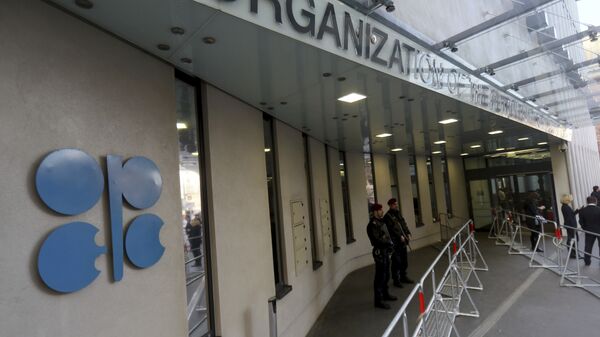"No, it was not good," Zanganeh said, answering a question about how the meeting went.
Other ministers participating in the meeting remained inside the OPEC headquarters to continue talks on possible adjustments to the OPEC-non-OPEC oil reduction deal.
On Thursday, June 21, a meeting of the Ministerial Monitoring Committee of OPEC + was held in Vienna, and the following day there will be a meeting of the OPEC countries, and June 23 — a meeting of all 24 countries of the OPEC + agreement.
READ MORE: Iraqi Oil Minister Hopes OPEC to Reach Final Deal on Friday
The Organization of Petroleum Exporting Countries (OPEC) and a number of non-member countries (OPEC+) agreed at the end of 2016 in Vienna to reduce oil production by a total of 1.8 million barrels per day from the level of October 2016. The deal came into force at the beginning of 2017 and has been extended twice, most recently until the end of 2018.
READ MORE: Russia, Saudi Arabia Move to Control Global Oil Markets — Analyst



